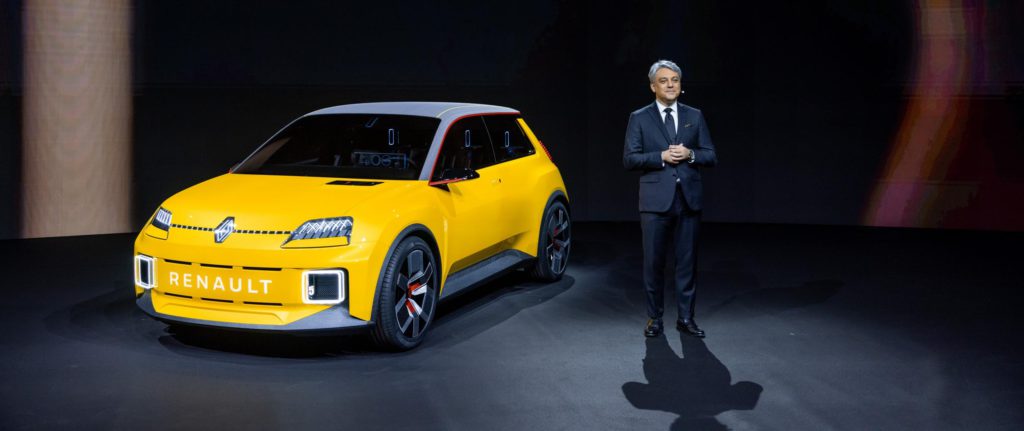Renault positions Mobilize with sustainability at its core
21 June 2021
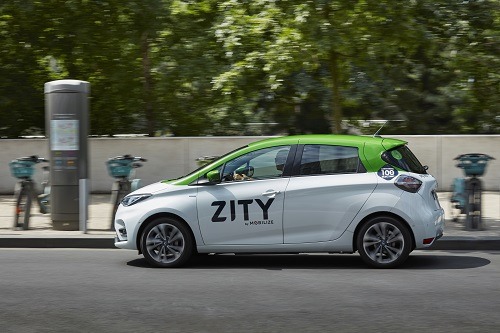
Mobilize, the mobility brand of Renault launched as part of the carmaker’s wider Renaulution strategic plan in January, has revealed further details of its planned mobility services and solutions.
The new initiatives are numerous, ranging from the presentation of dedicated vehicles for shared-mobility services, rebranding of car-sharing and self-service rental operations, to extending the life of batteries and supporting communities in their energy transition. The developments all seek to address the needs of a shared and sustainable future for mobility.
In a step to demonstrate the changes it is making, Mobilize presented three battery-electric vehicles (BEVs) at the VIVA Technology event in Paris this month. It is not taking the traditional retail route, as customers will pay for usage based on time or mileage.
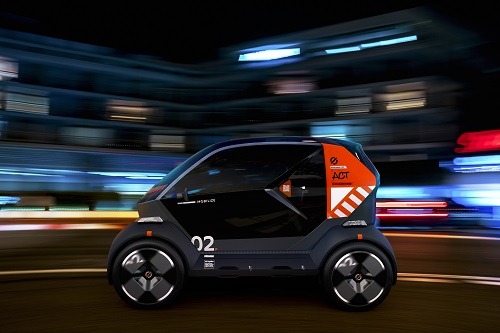
The two-seater DUO will be available for shared mobility. The vehicle ‘aims to incorporate 50% recycled materials in its manufacturing and be 95% recyclable when it reaches the end of its life cycle, thanks to the Renault Group Re-Factory in Flins,’ Mobilize stated.
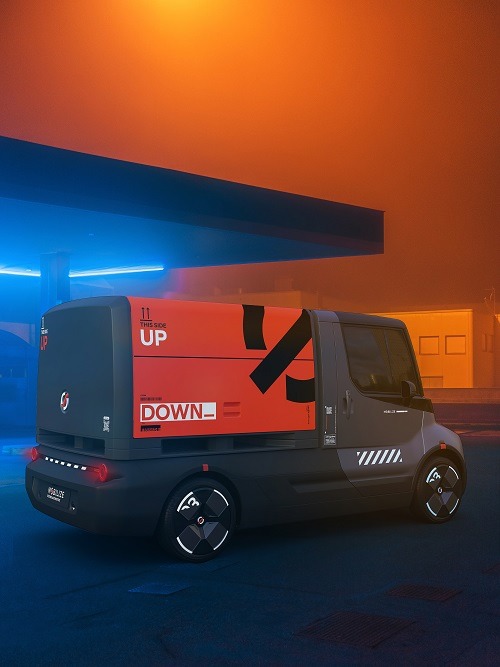
For the logistics sector, two new models will be available. Based on the DUO, the BENTO has been designed for the delivery of small-sized goods, with a storage area of up to a cubic metre. Furthermore, for last-mile deliveries, Mobilize has unveiled the HIPPO utility vehicle. This vehicle features several interchangeable cargo modules to meet different business needs, such as parcel deliveries of refrigerated transport. It has a storage capacity of up to about three cubic metres and can carry a payload of 200kg.
Extending battery life
In an initiative that would support the sustainability of their new vehicles, Mobilize is seeking to extend the usage of electrically-chargeable vehicle (EV) batteries before they are recycled. The Renault division has reached an agreement with German startup Betteries to develop and assemble a mobile, modular, multi-purpose energy system that is made up of EV battery modules. The manufacturing of the storage system will begin at the Renault Group’s Re-Factory in Flins in September 2021.
The system incorporates up to four 2.3kWh units, known as betterPacks. The maximum capacity of 9.2kWh is roughly the same as the average daily consumption of a household, according to Mobilize. As well as being emissions-free and silent, the power generators are transportable and so serve as mobile electricity-outlet units when connection to the grid is impossible.
Meanwhile, Elexent, which provides solutions for EV-fleet charging, has been renamed ‘Mobilize Power Solutions’. The business aims to optimise the total cost of ownership (TCO) of fleet users and help them grow their business. Mobilize Power Solutions is now operational in 11 countries across Europe, and services extend to energy optimisation and renewable-energy strategies.
Zity and Renault Mobility rebranded
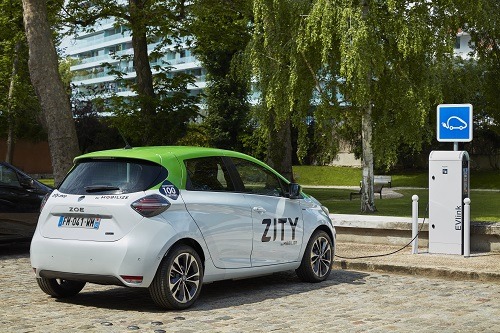
Zity, Mobilize’s free-floating car-sharing service has also been rebranded – as ‘Zity by Mobilize’. Available in Madrid since 2017 and Paris (together with the greater Paris region) since 2020, the brand is ajoint venture between Renault Group and Ferrovial. It has more than 430,000 customers, with a fleet consisting of 1,250 BEVs – 750 in Madrid and 500 in Paris – and is ‘set to extend to other cities over the course of 2021.’
Similarly, Renault Mobility, the agency-based, self-service rental business operation, will become ‘Mobilize Share’. The unit offers a wide range of Renault vehicles for hire to both private and commercial drivers, including a selection of BEVs, and has more than one million customers. Agency rentals range from a day to a month, but Mobilize Share also offers hourly rentals for self-service vehicle hire. The fleet currently comprises 15,000 vehicles, including 4,000 electric vehicles, and will be extended with a launch in Bergamo, Italy, and its four neighbouring municipalities.
Energy transition
As another part of its pledge to improve the sustainability of mobility services, Mobilize has entered into a partnership with Île d’Yeu island Town Hall, Enedis, and Qovoltis, to support the island in an energy transition. This collaborative approach aims to provide advice and solutions to accelerate EV-conversion rates on the island, assess charging-infrastructure needs and develop a rollout plan, and integrate electric mobility into the island’s overall energy transition. The latter includes optimising the use of solar energy across the local energy network through harnessing vehicle-to-grid (V2G) technology and stationary storage solutions for example.
Renault is a pioneer in the development of ‘Smart Island’ projects with the launch, back in 2018, of an initiative in Porto Santo. The smart island uses electric vehicles, second-life batteries, smart charging and V2G to boost its independence and stimulate the production of renewable energy.
In a similar initiative, Volkswagen Group’s Spanish brand SEAT is working alongside the Greek government to mould the island of Astypalea into a model of climate-neutral mobility. The six-year project began in 2020 and will involve a ride-sharing service made up of some 1,000 electrically-chargeable vehicles (EVs).
Securing a sustainable mobility future
These localised initiatives, in conjunction with wider vehicle and battery developments, are essential for securing a sustainable future for mobility as consumers move away from the traditional ownership model. The COVID-19 pandemic has accelerated this process as more consumers work from home and physical meetings move online, reducing average vehicle mileage in the process.
‘Issues relating to mobility and energy transition are at the heart of concerns shared by consumers, businesses, cities, and territories. Mobilize’s ambition, through its fully integrated and comprehensive offer, is to make a more sustainable world by providing mobility services, as well as services related to energy and data. Building on partner ecosystems that are complementary to our own, we want to provide concrete solutions to promote ecological transition and develop more accessible mobility for people and goods, especially in complex and congested urban environments,’ concluded Clotilde Delbos, CEO of Mobilize.
